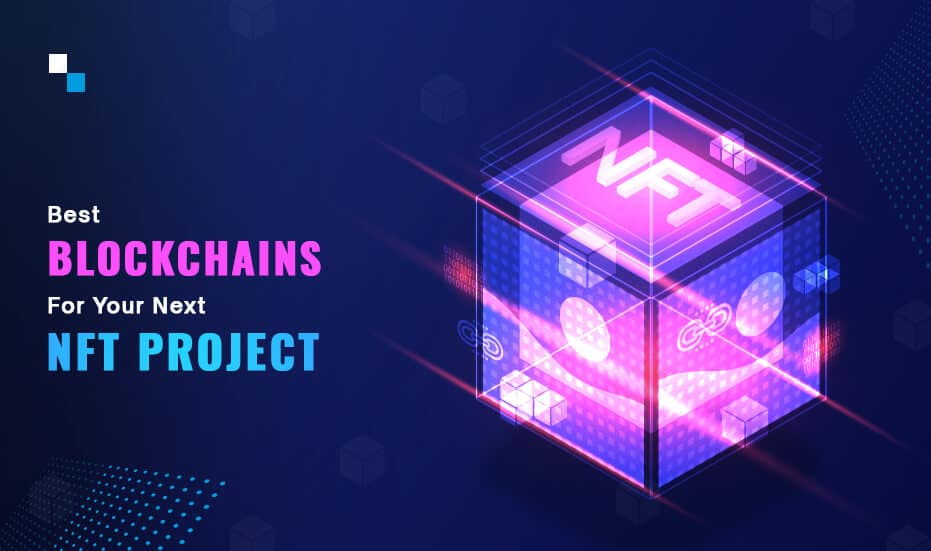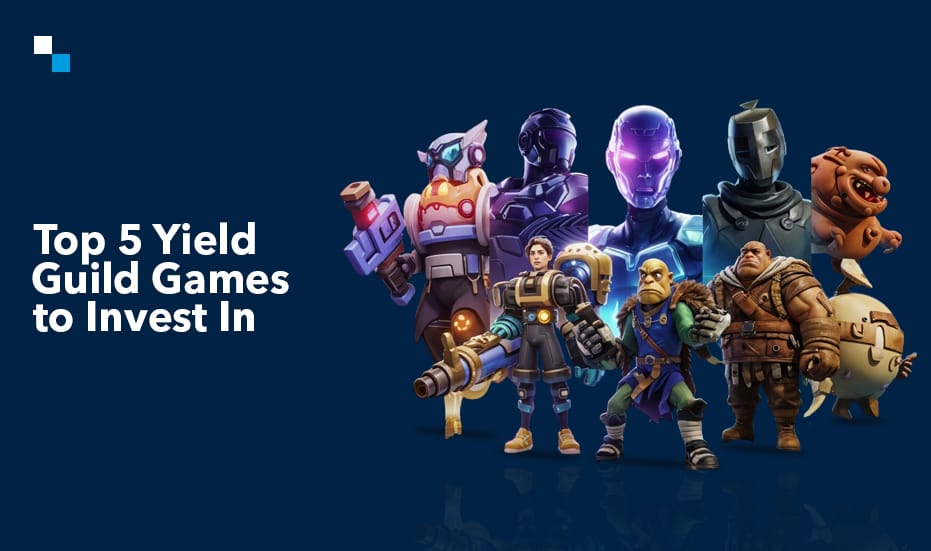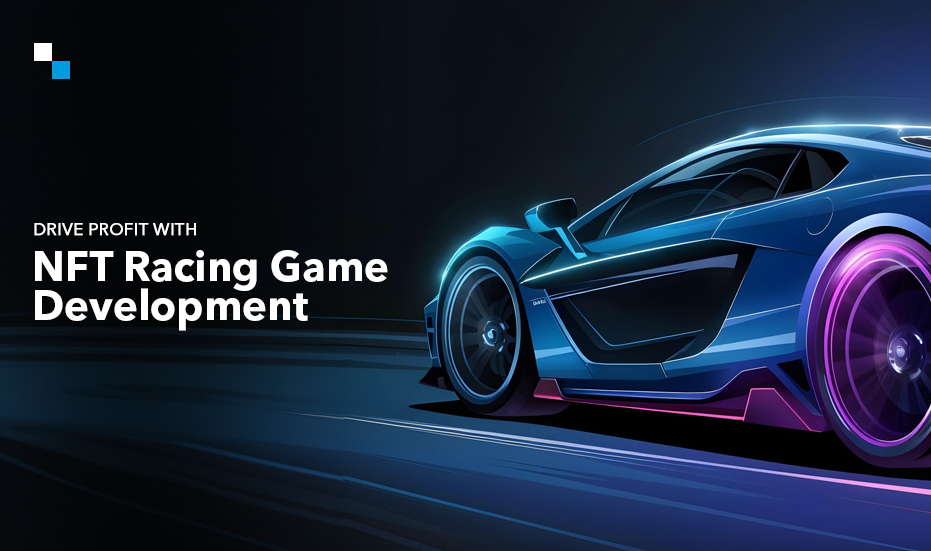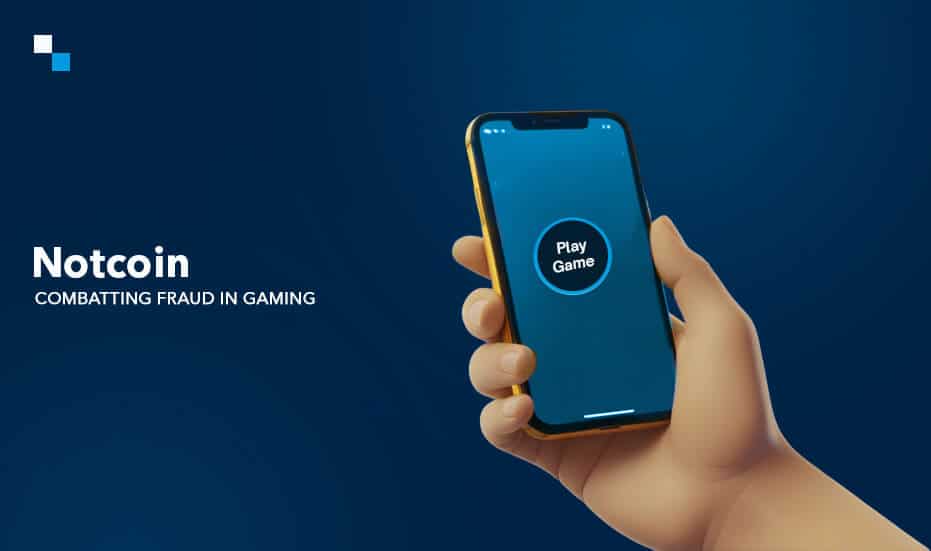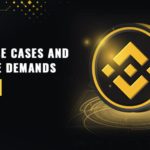
Binance Smart Chain: Top Use Cases and Future Aspects
March 22, 2023
How API Integration Will Empower The Metaverse?
March 23, 2023Non-fungible tokens (NFTs) have been the talk of the town and have witnessed massive leaps forward in the past few years. They are unique crypto tokens that increasingly gained momentum among digital artists, market leaders, enterprises dealing in diverse industries, and investors.
Bringing complete ownership and control into the buyers’ and creators’ hands, NFT development services are being cherished by crypto lovers and tech-savvy people all across the world.
Can’t believe it? Here are some compelling stats!
The NFT market generated around $24.7 billion worth of organic trading volume in 2022 across blockchain platforms and marketplaces. Not only this, the average revenue per user in the NFT segment amounts to US$70.46 in 2023.
In this blog, we’ll talk about the significance of NFT blockchains and discover the list of top NFT blockchains for successful projects in 2023 and beyond.
Without any further ado, let’s get you started!
Blockchain- The Driving Force to Build NFT Marketplace
Blockchain, also referred to as Distributed Ledger Technology is an immutable and shared registry that strengthens the process of keeping track of assets and transactions in the network. It is a completely decentralized database controlled by a network of peer-to-peer systems with no centralized authority mediating transactions.
Why are blockchains valuable?
Every transaction in a blockchain is carried out in blocks that get verified and validated by a network of computers.
Backed by cryptographic algorithms, every block is equipped with a data record of previous transactions and a timestamp.
With fully encrypted data, hacking and tampering with the data contained in the block becomes impossible. This ensures utmost security while executing transactions with no intermediary.
When we talk about NFT in blockchain, NFTs are tokens built or minted on blockchains. Every NFT has a unique identifier which is linked with an address held inside the chain and with the blockchain’s security and tracking system, NFTs turn out to be a trusted method to record information such as sale, creation, re-sale of digital assets, etc.

Best Blockchains for NFT
Prior to finding the best blockchains that support NFTs, it is important to consider a few aspects that lead to successful NFT development such as transaction speed, transaction cost, smart contract functionality, and consensus mechanism.
Since you know the prerequisites now, let’s move to the NFT blockchains list and explore different options to help you pick the best one!
Before that, let me share the top blockchains by NFT sales volume:
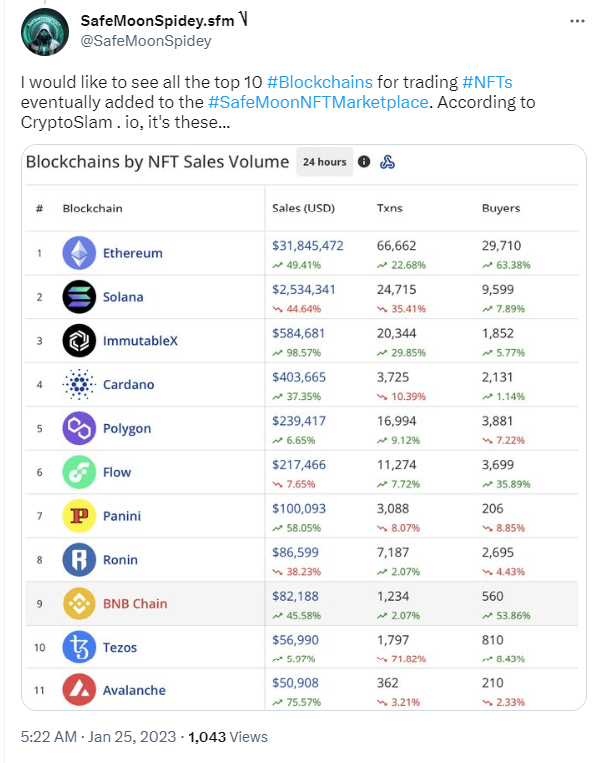
Ethereum
Out of all blockchain networks, Ethereum is the best of all and sets the foundation of NFTs. Therefore, NFTs are sold at comparatively higher prices, and this is the primary reason why creators pick Ethereum over other blockchains. Ethereum comes with a highly secure data architecture and network while leading the DeFi market with the majority of the NFT projects operating as ERC-721 coins.
Another reason why Ethereum is an ideal choice for NFT blockchain platforms development is that Ethereum is backed by a huge community of developers and users across the globe and market leaders planning to build their NFT project on Ethereum will have to use programming languages like Solidity for writing smart contracts. Users need to pay gas fees to Ethereum for getting transactions processed by the network.
Unlike the older version that supported the PoW (Proof of Work) model, Ethereum now supports the PoS (Proof of Stake) model that maximizes the blockchain’s scalability and functionality.
Moreover, previously it supported 15-20 transactions every second and now it can handle over 100,00 transactions.
Here are some of the popular Ethereum NFT projects:
- Axie Infinity
- Decentraland
- CryptoPunks
- Gods Unchained
- The Sandbox
- NBA TopShot
- Bored Ape Yacht Club
Solana
Solana is another popular blockchain that has taken the NFT marketplace platform development world by storm. Solana leverages the PoH (Proof of History) consensus mechanism that has a high transaction rate per second (TPS).
Solana is backed by an architectural design that ensures affordability and superior quality outputs. It even offers a robust marketplace to collectors and creators while ensuring quick minting of NFTs.
As Solana offers low transaction costs and high speed, it doesn’t require additional scaling solutions which further makes it one of the perfect NFT blockchain platforms.
Compelling reasons to pick Solana:
- Proof-of-history mechanism
- Quick & economical minting of NFTs
- A growing ecosystem
- Scalability, interoperability, and liquidity.

Flow
Flow is a well-known proof-of-stake blockchain and a decentralized channel that supports dApps such as NFTs, NFT collectibles, and crypto games.
It enables developers to build high-potential applications which can be accessed by countless users. It supports high-performance ecosystems of games and applications without compromising decentralization.
Flow leverages a PoS consensus mechanism for verifying transactions and with its high performance, it is capable of processing over 10,000 transactions every second in a seamless manner.
It even opens doors for consumers of entertainment and culture while making it more transparent and open.
Reasons to invest in Flow blockchain for your next NFT project include:
- High throughput
- Reduced complexity
- Developer-friendly
- Upgradable contracts
- Convenient usability
Cardano
Cardano is a robust, versatile, and extensible blockchain platform to perform smart contracts while building a wide range of decentralized finance apps, NFTs, games, new cryptocurrencies, and other apps. It is a blockchain-based platform ideal for investors that were launched in 2017.
While redistributing powers to users, Cardano helps in building a safe, fair, and transparent system. The ecosystem of Cardano is crafted as the third generation blockchain platform that has two layers Cardano Computation Layer (CCL) and Cardano Settlement Layer (CSL).
Having Cardano for NFT marketplace platform development accompanies numerous benefits:
- Consensus mechanism
- Rapid speed, security, and scalability
- Smart contract capability
- Community support and funding
- Higher ROI
Read Also: How to Build an NFT Marketplace
EOS
EOS is an open-source blockchain protocol popular for building decentralized applications while collaborating within a distributed database structure. It overcomes the primary issues in a blockchain such as transaction speed, commercial stability, and cost.
It ensures seamless smart contract development while enabling the creation and hosting of industry-scale, decentralized autonomous applications. This helps EOS to become superior over other blockchains for ideal white label NFT marketplace development backed by innovative features like full-duplex communication and parallel processing.
Major reasons to pick EOS include:
- High performance
- Convenience
- Measurability
- Upgradability
- Multiprocessing and parallel processing
- Horizontal and vertical scalability
- Asynchronous Communication
- Security
- Consensus protocols
Tezos
Tezos popularity is spreading like wildfire that has become the best blockchain among artists on the hunt for minting digital art, music, etc as NFTs. It is an open-source blockchain protocol for assets and apps powered by a global community of developers, researchers, and validators.
As Tezos has a flexible and robust network, it drew wide attention in its ICO. It is a self-amending blockchain i.e. Tezos upgrades itself with no requirement of splitting the network into two different blockchains.
Unlike all other blockchains, Tezos tends to create the decision-making process in the network of users itself.
Other compelling reasons to choose Tezos as one of the best NFT blockchains include:
- Leverages the Proof-of-Stake consensus mechanism.
- Any stakeholder can participate and get rewards for their contributions.
- Its native smart contract language ensures formal verification further helping in nuclear, aerospace, and other areas.
- Offers safety and code correctness.
- Modular architecture and formal upgrade mechanism.
Polygon
Polygon is the layer two protocol of Ethereum which was initially called Matic NFT with the objective of connecting and developing Ethereum-compatible blockchain networks. It allows free and more efficient minting of NFTs while paving the way for the storage of value as digital assets and collectibles.
Why is Polygon the best blockchain to kickstart your NFT project?
- Enhanced security protocols
- Layer two solutions
- Efficacy
- Decentralized architecture
- Economical gas fee
Features of White-label NFT Marketplace
Going for custom NFT platform development can cost you higher as compared to a white label solution. Therefore, if you have a confined budget, it is preferred to go for white label NFT development as it will save you a lot of cost, time, and effort.
Prior to getting started with the NFT development lifecycle, it is important to dive deeper into the must-have features in a white label NFT marketplace solution.
Read Also: Benefits of White Label NFT Marketplace Development
Irrespective of the industry vertical you are dealing in, there are a few standard features that every white-label NFT marketplace must have.
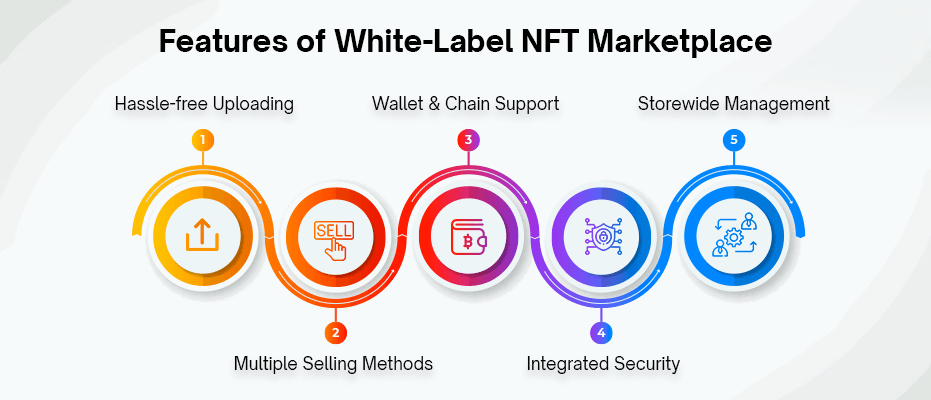
1. Hassle-free Uploading
Traders and creators list thousands of NFTs on marketplaces and every NFT can be in numerous formats such as 3D model, audio, video, or other digital forms.
This indicates that the uploading system of an NFT marketplace should be capable of accepting, processing, and previewing all the available formats.
On top of that, the uploading system must be capable of displaying all the attributes in an appealing manner to marketplace visitors. This can be done by ensuring bulk uploading through CSV or even excel files.
2. Multiple Selling Methods
When it comes to the selling methods in NFT, there are majorly two methods –
- Fixed price: Items can be purchased instantly.
- Auction: NFT is bought by the individual placing the highest bid in a particular time frame.
Therefore, make sure that your white-label NFT marketplace development is equipped with both these methods to ensure a seamless user experience in the long run.
If you are planning for an enhanced experience, you can consider two other selling methods as well- mystery boxes and whitelisting.
3. Wallet & Chain Support
Out of all the best NFT blockchains available in the market, pick the most suitable one and based on this you need to ensure that the white-label NFT marketplace must integrate with it.
Picking the blockchain will further decide the type of wallet supported by the marketplace. Therefore, make sure that you choose wisely.
4. Integrated Security
With the growing security concerns, it is essential that your NFT marketplace is safe from any sort of security and data breaches. Your marketplace needs to have multiple layers of security that safeguard the business and customers’ confidential and sensitive information at all times.
Complete encryption, KYC verification, firewall integration, 2FA, and other security practices need to be implemented to ensure a fully secure NFT marketplace.
5. Storewide Management
One of the prominent NFT marketplace features is hassle-free where user activities can be managed besides NFT revenue and royalties from sales. On top of that, collaborators and partners should have the access to selling, uploading, and managing their NFTs with a thorough overview of it.
Ready to Take Your NFT Journey to the Next Level?
Searching for an NFT development company is just a click away nowadays. But the real task is to find the right one which fits your business model. Also, as the NFT landscape is evolving at a rapid rate, you’ll find countless agencies bragging about their skills and expertise in the NFT space.
Invest a great amount of time and effort while understanding their offerings, and analyze their skillset, industry expertise, team size, and technology exposure. Besides that, don’t forget to have a look at their portfolio and testimonials as well. It will help you find the best company for your business needs.
In case you are planning to start your NFT journey from scratch or take your NFT business to new heights, Antier has got you covered. The globally recognized NFT development company specializes in a plethora of NFT solutions backed by a certified and innovative team of NFT experts. Discuss your business needs and expectations with us today!
FAQs
1. What are the different types of NFTs?
If you are on the hunt for the best NFTs to create, there are ample types to choose from:
- PFPs and avatars
- One-of-one artwork
- Generative art
- Collectibles
- Photography NFTs
- Music NFTs
- Gamified NFTs
- NFT event tickets
- Membership passes.
- Domain names
2. How NFT blockchain works
Cryptographic assets known as non-fungible tokens, or NTFs, are stored on a blockchain, which is a distributed public ledger that keeps track of transactions. Each NFT is distinguished from the others by its unique identification codes. Transferring tokens between owners and verifying ownership are made simple by this data.
NFTs can be bought and sold in the same way that physical assets can, and their value is determined by the market, or supply and demand. NFTs are digital representations of assets, but they can also represent things like real estate and artwork.
3. What blockchains are NFTs on
NFTs can be made on different blockchains, based on the requirements, expectations, target audience, and functionalities of the blockchains. Major blockchains available include-
- Solana
- Tezos
- Flow
- Worldwide Asset Exchange (WAX)
- Binance Chain (BNB)
- Cardano
- EOS
- Algorand
- Tron
